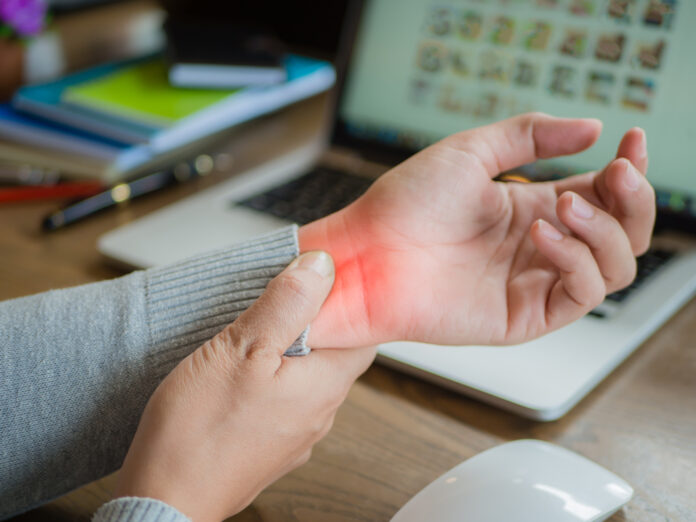
If the median nerve in your wrist is pinched or compressed, you will likely develop carpal tunnel syndrome (CTS). The median nerve runs from your arm to your hand and contributes to the mobility and sense of touch in all your fingers, except your pinky and the part of your ring finger that is closest to your pinky.
The median nerve connects your arm and hand through the carpal tunnel, including your wrist’s various bones, ligaments, and tendons. A swollen carpal tunnel can pinch or compress the median nerve, resulting in numbness, pain, or weakness in your hand and wrist.
Fortunately, carpal tunnel syndrome can be treated – and better yet, it can be prevented. Let’s take a look at the various things you can do in different areas of your life that will help you to avoid developing carpal tunnel syndrome and/or reduce symptoms.
General advice
You can do some things to avoid carpal tunnel syndrome, no matter where you are or what you are doing.
Using a wrist brace or splint when you sleep or need to do repetitive movements can help by holding your wrist in a straight position.If you can, try to make as few repetitive movements as possible. If you need to perform repetitive activities, switch from one hand to the other to avoid tiring out your wrists.
Taking short breaks, even just once each hour, can also help. Try setting the alarm or scheduling breaks on your calendar to help you remember to give your wrists a rest.
Be sure to stretch. You should stretch at least during your hourly breaks, but preferably, you should every 20 minutes. You can do simple stretches that do not require any weights or other equipment.
Work accommodations
You can do a few things to reduce your risk of getting carpal tunnel from working on a computer. You can invest in an adjustable-height chair so you can maintain proper posture while you are on the computer. A specialty keyboard or mouse can also be helpful.
If you have a manual job, you can adjust your work habits. For example, use tools that are the right size for your hand and that will not put excess strain on your wrist. Wear fingerless or anti-vibration gloves to keep your hands and wrists warm and absorb the shock of vibration from tools such as drills.You should talk to your doctor if you think you might have CTS.


















